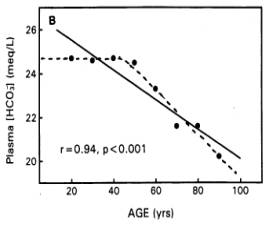Does Alkaline Diet

Alkaline Water and Diet is touted as a simple way to Lose Weight, but what is the evidence? This page looks at the evidence from Acid/Alkaline Food Combining guidelines, Alkaline Diet, Alkaline Water and other clinical studies on the effects diet to our general health.
Acid/Alkaline Food Combining History
"If one does not know that the nature of substances may be opposed to each other, and one consumes them altogether indiscriminately, the vital organs will be thrown out of harmony and disastrous consequences will soon arise."
[Chia Ming, Essential Knowledge for Eating and Drinking, 1368 AD, Source Daniel Reid, The Tao of Health]
 In 1908 Dr Howard Hay after practicing medicine for 16 years developed high blood pressure, brights disease and a dilated heart. There was no treatment available for brights disease and dilated heart so Dr Hay decided to find a cure for his own symptoms. He focused on his food intake and the chemical process of digestion and the enzymes that are essential for this process.
In 1908 Dr Howard Hay after practicing medicine for 16 years developed high blood pressure, brights disease and a dilated heart. There was no treatment available for brights disease and dilated heart so Dr Hay decided to find a cure for his own symptoms. He focused on his food intake and the chemical process of digestion and the enzymes that are essential for this process.
To the amazement of his colleagues, he had a complete remission of his symptoms in 3 months of changing his diet.
He also reduced his weight by 20 Kg.
In 1911 Dr Hay introduced his Food Combining guidelines, which are also known as the Hay Diet.
His simple message was: eat whatever wholesome, nutritious food you like; just don't eat complex proteins and carbohydrates/sugars/fruits in the same meal because this will allow the digestive enzymes to work better. He advised on a reduced consumption of acid forming foods.
Although Dr Hay had many critics, he continued to lecture till his death. Today millions of people world wide are following or further extending his basic principles to include othe food types and such factors as individual and genetic metabolic differences.
What do Clinical Studies suggest?
We know that enzymes are essential for digestion and that enzymes only function at specific pH levels. Common sense tells you that you should provide your body with the required nutrients in the right combinations that it needs to digest the food and perform its functions, including the all important maintenance of an alkaline blood pH level of 7.365.
Yet, chemists and some doctors maintain that the body needs no help from a dietary acid-alkaline angle with regards to digestion or to maintain an alkaline blood pH. They argue that all food in the stomach is acidic and becomes alkaline in the duodenum and that the body has an effective buffering system based on bicarbonates and an acid/alkaline diet or alkaline water has no effect on this. You can eat or drink what you like, in whatever combination and the body will have no problems, they argue.
Others like Daniel Reid disagree. He explains, for example, that the sugary sweet, fizzy 'soft drink' is actually an 'acid bomb'.
"A 350 ml serving of Coke, Pepsi or similar drink delivers a sugar fix equivalent to about 9 teaspoons of sugar straight into the blood stream. This instantly acidifies the bloodstream to the extreme point that without an immediate emergency response from the body, it would kill you in a mater of minutes. To counter act this rise in pH, you'd have to drink 32 glasses of alkaline water to neutralize the blood pH. In order to prevent death by acidosis, the body reacts swiftly by drawing huge amounts of organic calcium from the bones and teeth and pouring it into the bloodstream to neutralize the excess acid and quickly restore alkaline balance. Calcium is the bodies most potent alkalizing agent, and this defensive response mechanism is one of the main causes of osteoporosis."
Who is right? Are there any scientific studies to settle this issue?

1. Probably the first scientific studies on digestion were conducted by Ivan Pavlov who became famous for his experiments on 'salivating dogs'. Pavlov's experiments with rats showed that that starches are digested in about two hours, proteins are digested in about four hours but a protein-starch mixture can still be digesting 13 hours later. In other words, a protein-starch mixture takes several times longer to digest, compared to eating then separately.
Pavlov also showed that food taken on top (i.e. before digestion has completed) can lead to fermentation and toxic by-products, putting strain on the system. This happens when you eat fruit after a meal; many people say that it gives them gas.
What could account for this?
"In fact, most fruits go straight through the stomach into the duodenum for digestion, which means if you put fresh fruit on top of a big meal, it has to sit and wait in the top of the stomach until the other food is digested, during which delay bacteria attack the fruit and ferment it, gobbling up all the nutrients and leaving you with gas and metabolic wastes." Daneil Reid, Trophology: The Science of Food Combining.
2. This study of "Cola beverage consumption induces bone mineralization reduction in ovariectomized rats" (the rats were fed cola - acid, pH 2.5 - and the effects on bone density measured) suggests that calcium from the bones is used up in maintaining an alkaline blood pH balance. The researchers concluded: "These data suggest that heavy intake of cola soft drinks has the potential of reducing femoral mineral density".
3. This study on the effects of alkaline ionized water on milk yield, body weight of offspring and perinatal dam in rats tentatively concludes that "higher calcium concentration of AKW [alkaline water] enriched the mother, serum calcium which was transferred to the fetus through the placenta and to the offspring through the milk."
4. This study on the Influences of alkaline ionized water on milk electrolyte concentrations in maternal rats states "These data suggested that the Ca cation of AKW enriched the Ca concentration of the milk and accelerated the postnatal growth of the offspring of rats given AKW"
5. In 1996 Dr. Lynda Frassetto at the University of California, San Francisco, discovered that as we age, starting around age 45, we lose the alkaline buffer bicarbonates in our blood. By the age of 90, we lose 18% of bicarbonates in our blood. This loss was shown to be diet induced. This is from the published abstract
"Our group has shown that contemporary net acid-producing diets do indeed characteristically produce a low-grade systemic metabolic acidosis in otherwise healthy adult subjects, and that the degree of acidosis increases with age, in relation to the normally occurring age-related decline in renal functional capacity."

Figure 2, graph B of- Journal of Gerontology: BIOLOGICAL SCIENCES, 1996, Vol. 51A. No. 1, B91-B99
- By Dr. Lynda Frassetto of University of California, San Francisco (Dotted line added by Sang Whang)
Sang Whang had been saying this for years. This study in part supports his Theory of Aging: we age because we accumulate organic acid wastes.
Insufficient amount of bicarbonates in our blood reduces our capabilities to manage (neutralize and dump) the acid our body produces from metabolism. The bicarbonates get used up after years of continual efforts to maintain an alkaline balance because of the acidifying diet that we now have.
The age of 45 is the average age when we start to show symptoms of diabetes, hypertension, osteoporosis and many other adult degenerative diseases. Dr Frassetto suggests that since are now subjected to so much acid wastes, it is as if we have made a evolutionary change: we are now depositing them in pockets of fat away from the major organs where they can do less damage. These wastes show up as cholesterol, fatty acid, uric acid, urate, sulfate, phosphate, kidney stones, etc.
Conclusion of Scientific Studies
These and other studies suggest:
-
If you eat proteins and carbs in the same meal, they won't digest quickly.
-
If you drink acid drinks (like cola), the body will take calcium from the bones and teeth to maintain pH balance
-
If you drink alkaline water this will be assimilated by your body - i.e. gradually improve your bones and teeth
-
If you eat acid producing foods, over the long run it will deplete your alkaline buffers and is a cause of acidosis.
-
Over-acidity could be the cause of obesity; alkalinity and hydration could be the simple cure.
So a water rich alkaline diet and alkaline water could help you lose weight and improve your general health.
Remember, often what you don't eat is more important then what you do eat. You should in particular avoid sugary, acidic soft drinks that give you concentrated acid water to harm your blood pH and blood sugar levels.
Also keep in mind as the Frassetto study showed, we are now stockpiling acid wastes in our bodies in pockets of fat. The body creates fat to cope with the heavy load of toxic acid wastes that are continuously being produced as a result of metabolism. The fat consists of cholesterol, cellulose and other deposits which actually contain dangerous organic wastes inside them.
The basic problem is that we eat too much of the wrong things. As Dr Young says, "obesity is an acid problem - the fat is saving our lives"
The answer is simple: Drink lots of alkaline water; eat more alkaline, water rich foods and; don't eat foods the fight in the same meal.
Source: www.detoxifynow.com

